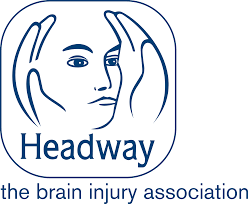1. What is minor head injury?
Minor head injury is a temporary disruption of brain function caused by insult to the brain. The technical definition is either a loss of consciousness for any brief period up to 15 minutes, or a loss of continuous memory for events (PTA) for up to one hour. However, in many cases a minor head injury can occur with no loss of consciousness and no disruption to memory.
2. Is the head always struck in a minor head injury?
No. Although the head is often struck, as in a car accident, fall or blow to the head, minor head injury can also occur as a result of sudden violent motion – as in whiplash injuries.
3. Why is minor head injury often called the unseen injury?
Although physical recovery may be complete and the person looks fine, psychological problems in the areas of thinking, behaviour and emotions may remain as a result of damage to nerve cells.
4. Does minor head injury always result in permanent damage?
No. Most people who suffer mild bumps to the head will recover quickly. They may experience only temporary symptoms which disappear with time. Only when sufficient nerve cells have been damaged, or if there are repeated minor injuries, will people experience permanent changes in the way they think, feel and act.
5. What is the normal course of recovery after minor head injury?
Although recovery may differ between individuals, many people may experience headaches, dizziness, nausea, vomiting, confusion, disorientation and lethargy immediately after their injury. Usually the events immediately before the incident and those for some time afterwards may not be remembered, even though the person may have been conscious for a majority of that time. All these symptoms are common after a minor head injury, and the person is said to be suffering from concussion, or post-concussion syndrome. Usually these symptoms will gradually disappear, although the recovery period may vary from a few days to as long as a few months.
6. When do more problems occur?
When a sufficient number of nerve cells have been damaged, certain symptoms may remain and interfere with a person's life – at home, at school or in the workplace.
7. How will I recognise these problems?
Often it is not until the injured person has returned home, or to school or work, that they may say they feel 'off', or that things are 'just not the same'. Memory problems are common, especially for new learning. The person may forget names, where things have been kept, appointments, and so on. They may find they have a shorter attention span, are easily distracted and experience difficulty in concentrating on more than one activity at a time. They may find it harder to concentrate, and reading may become mentally tiring. When speaking, they might find difficulty in expressing thoughts or to find the right words to do so concisely. They may think and respond more slowly, may not have the same insight or spontaneous ideas and it may take them more effort to do things they used to do automatically.
Other problems may include difficulty in planning, organising, setting and achieving realistic goals, or offending others by saying and doing things that are out of character, and missing the subtle clues that indicate how others are reacting.
Survivors commonly complain of not being able to achieve anything or not having any motivation. It is often concerned friends and relatives who first notice these behavioural changes, sometimes commentating that the person is 'not the same' as before the injury.
8. What do these changes mean?
When these changes persist for many months after the injury, it means substantial nerve cells have been damaged, possibly affecting thought, emotion and behaviour. It also means that the person affected should seek help to learn to overcome or adapt to the changes that have occurred.
9. Will doctors find neurological damage?
Usually but not necessarily. The nerve cell damage that occurs may be widespread, microscopic and may not appear on CAT or MRI scans or in neurological examinations. The patient's problems can be real and caused by nerve damage, even if not medically obvious.
10. Will there be any psychological problems?
Very possibly. When a person finds they cannot function as they used to and cannot understand why, it is natural for them to become frustrated or depressed, and to avoid situations where they might fail. If, as sometimes happens, the person is told by uncaring and misinformed people that they have no problems and are just imagining things, it is easy for them to feel guilty, angry, or feel they are going crazy. These feelings only complicate the problems caused by the injury and, if this happens, it does not mean that the person is 'going mad'. It means that it is time that appropriate help is sought.
11. What should the person do if they experience problems like these?
They should contact the medical professional they trust most, explain their problems and ask for a referral for a neuro-psychological assessment. A Clinical Psychologist specialising in neuro-psychology who has been specially trained to understand and treat the problems that occur following damage to the brain should carry this out. While the assessment is extensive, it is the best way to gain understanding of the nature of the problems remaining after injury, and to begin the process of adjusting and adapting.
12. I have had a minor head injury, should I be worried?
Most people recover fully after minor accidents, given time. Do not be so anxious that you start avoiding situations. Return slowly and gradually to your normal routine. If symptoms persist, seek help. Even when symptoms remain, early evaluation and treatment can prevent many of the problems mentioned above.
